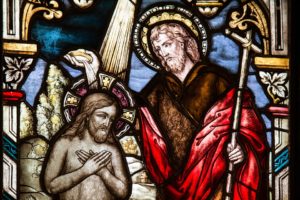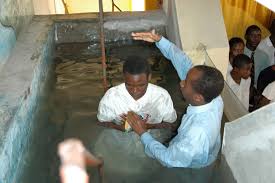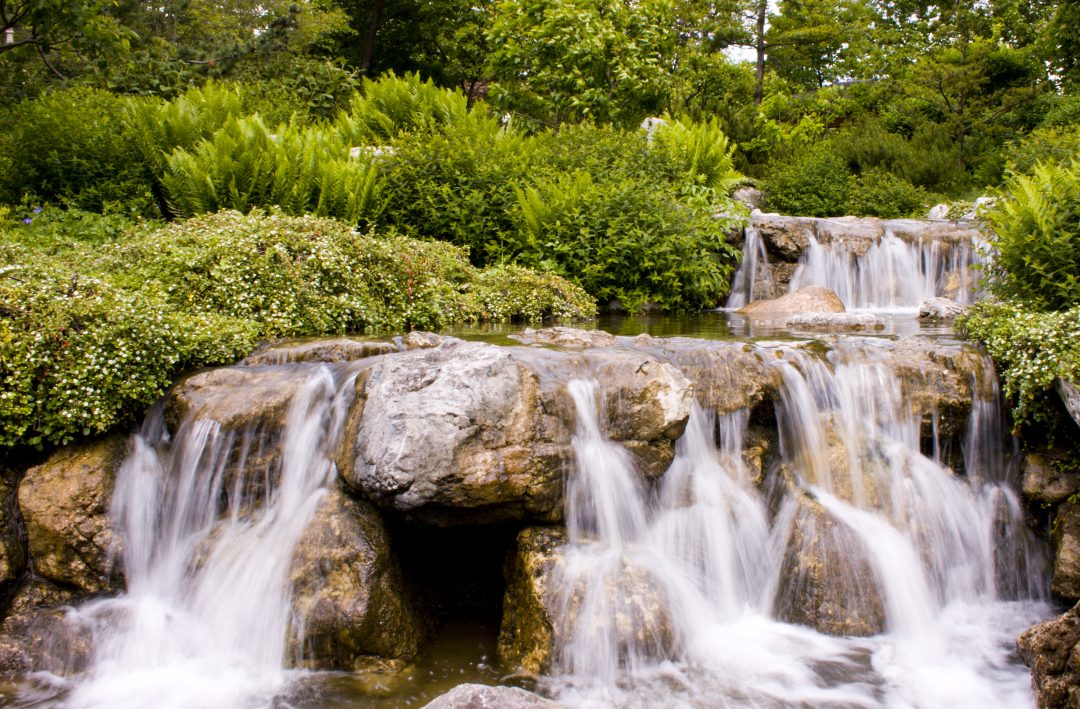Many people are not aware of it, but they’re actually are multiple references in the Bible to “living water” or some variation on that phrase. The most famous references are in the Book of John, but there are also references in the Old Testament and another in the Book of Revelation.
Probably the most quoted living water verse comes from John 7:38-39. At the beginning of the chapter, John writes that the Feast of Tabernacles was upon them, and Jesus’ brothers deride him and challenge him to display his miracles (which they obviously did not believe in) openly (vv 3-5). He later departs and goes up to Jerusalem in secret. However, midway through the feast, he begins to teach openly.
Most commentaries agree that “the last day” is the eighth day of the festival (Lev 23:39), which is actually a separate, but attached festival day (because the Feast of Tabernacles is only seven days long). Indeed, BibleStudyTools.com quotes John Lightfoot’s commentary in saying about John 7, “They did not reckon the eighth day as included within the feast, but a festival day separately and by itself.” Even today, the Orthodox Jews build sukkah or booths to sit in for seven days, but on the eighth day, they vacate them.
This passage is significant for a couple of reasons, and not the least reason is that there was a water gate ceremony that took place at the temple on the last day. There were two silver containers, one containing water and the other containing wine, and some of the water was poured into the wine, followed by pouring some of the wine into the water. The Holy Spirit is symbolized by various things in the Bible, but twice in the Book of John is water used to symbolize the Holy Spirit. Wine is reminiscent of the water and the wine, in which the wine symbolizes Christ shedding his blood for everyone’s sins.
It is important to notice how “the Holy Ghost was not yet given; because that Jesus was not yet glorified.” Jesus had to shed his blood before he could be glorified and return to the Father. Jesus told His disciples, “For if I go not away, the Comforter will not come unto you” (Jn 16:7b). While the living water is the focus of this passage, it should be sobering to contemplate that Jesus had to shed his blood prior to the giving of the Holy Spirit to his disciples.
Living Water leads to eternal life
Jesus’ words about living water, because it leads to eternal life, springing up from within a person are intentionally parallel with what Jesus told the Samaritan woman at the well in John 4:13-14. This is vital to understand because a person without the Holy Spirit does not belong to Christ (Ro 8:9) and, therefore, will not receive eternal life! The gift of the Holy Spirit is not optional in the life of a believer!
Therefore, it is also important to understand when one drinks in this living water, the Holy Spirit. This was a question posed early on, as well, for Acts 19:1-5 has disciples of John stating, “We have not so much as heard whether there be any Holy Ghost.” They are then told to be baptized into the name of Jesus, which is the only name by which human beings can be saved (Ac 4:12). After the baptism by Paul in the name of Jesus, these disciples had hands laid upon them and they received the Holy Spirit (v 6).
 Peter told the Jews of his day to “Repent, and be baptized …, and ye shall receive the gift of the Holy Ghost” (Ac 2:38). Throughout the Old and New Testaments, the text speaks of people set aside and hands laid upon them in order for the Holy Spirit to do God’s work. This idea is reinforced in Acts 8:14-17, in which disciples were baptized in Samaria, but the Holy Spirit was not given until the apostles laid hands upon them. The laying on of hands is a fundamental Christian belief (Heb 6:1-2).
Peter told the Jews of his day to “Repent, and be baptized …, and ye shall receive the gift of the Holy Ghost” (Ac 2:38). Throughout the Old and New Testaments, the text speaks of people set aside and hands laid upon them in order for the Holy Spirit to do God’s work. This idea is reinforced in Acts 8:14-17, in which disciples were baptized in Samaria, but the Holy Spirit was not given until the apostles laid hands upon them. The laying on of hands is a fundamental Christian belief (Heb 6:1-2).
It should be stressed that baptism and the laying on of hands is not some magic ritual by which a person has the universe bend to his or her will. Rather, these ceremonies are acts of obedience through faith so that Jesus can do what he claimed he could do, which is to save a person from their sins and grant them eternal life. Without faith, the ceremony is useless. However, as James put it, “Faith without works is dead” (Jas 2:26b).
Old Testament also speaks of living waters.
Perhaps it is not too surprising to some that the Old Testament also speaks of living waters. God calls Himself “the fountain of living waters” (Jer 2:13; 17:13), which stresses that the Spirit extends from him. Whether the Bible speaks of God’s Spirit, the Holy Spirit (or Holy Ghost in the old KJV) or the Spirit of Christ, it is a reference to the same thing. The Holy Spirit is God’s power and was seen even during the Creation period (Ge 1:2). We also see living waters mentioned in Zechariah 14:8, which appears to be a physical representation of God’s healing power during the time that Christ returns to rule the Earth.
What might be more surprising is that one of the references is in the Song of Solomon (aka Song of Songs). It is a beautiful love poem, and it should reinforce the fact that God created not only marriage but love itself. Some see the book as an allegory of Christ’s love for the Church, and that may well be appropriate, for Paul, in particular, uses the same analogy. In chapter 4, the man extols his love’s beauty and love. He calls her “a garden enclosed” (sic) and “a fountain sealed” (v 12). Then, in v 15, he calls her “a fountain of gardens, a well of living waters, and streams from Lebanon.”
If the book is as much an allegory as it is a book of poetry about two physical lovers, then it stands to reason that Christ’s Church, his love, would have the living waters streaming forth from her. The Church is not a building or an organization founded by human beings. Rather the Church is the collection of “called out ones,” the believers who are called out of this world and have been given the power of the Holy Spirit to cleanse them and guide them.
Living waters in the Book of Revelation
The last mention in the Bible of living waters is in the Book of Revelation. In chapter 7, John writes about two groups that come out of the Great Tribulation. First, there are 144,000 who are “sealed” from the tribes of Israel. A seal was a piece of wax placed upon a scroll upon which someone in authority, usually a king or emperor, pressed a signet ring, and this seal attested to the content’s authenticity and indicated that it had not been tampered with. There are various examples of this in the Bible, but perhaps none more illustrative than the ones contained within the Book of Esther.
The seal is also symbolic of the Holy Spirit. Paul wrote to the Ephesians, “Ye were sealed with that holy Spirit of promise.”
 However, after the sealing of the 144,000, John also describes in v 9 “a great multitude, which no man could number” that came out of the Great Tribulation wearing white robes. Speaking of this group, the angel showing John all these things says in v 17, “For the Lamb which is in the midst of the throne shall feed them, and shall lead them unto living fountains of waters: and God shall wipe away all tears from their eyes.”
However, after the sealing of the 144,000, John also describes in v 9 “a great multitude, which no man could number” that came out of the Great Tribulation wearing white robes. Speaking of this group, the angel showing John all these things says in v 17, “For the Lamb which is in the midst of the throne shall feed them, and shall lead them unto living fountains of waters: and God shall wipe away all tears from their eyes.”
This group has attained eternal life through the Holy Spirit! Most likely, they were never even converted until the Great Tribulation came upon the world.
It is important to notice the wording, though. John also writes in Revelation 21:4 that in the New Jerusalem, “God shall wipe away all tears from their eyes,” meaning all of humanity. Furthermore, even though the phrase “living water” is not used, the very next chapter ties together “a pure river of water of life” to “the tree of life” to provide the “healing of the nations” (Rev 22:1-2).
Perhaps there is no better way to end an article on living water than to simply quote the last verse containing the word “water” in the Bible:
17 And the Spirit and the bride say, Come. And let him that heareth say, Come. And let him that is athirst come. And whosoever will, let him take the water of life freely.”~ Rev 22:17






